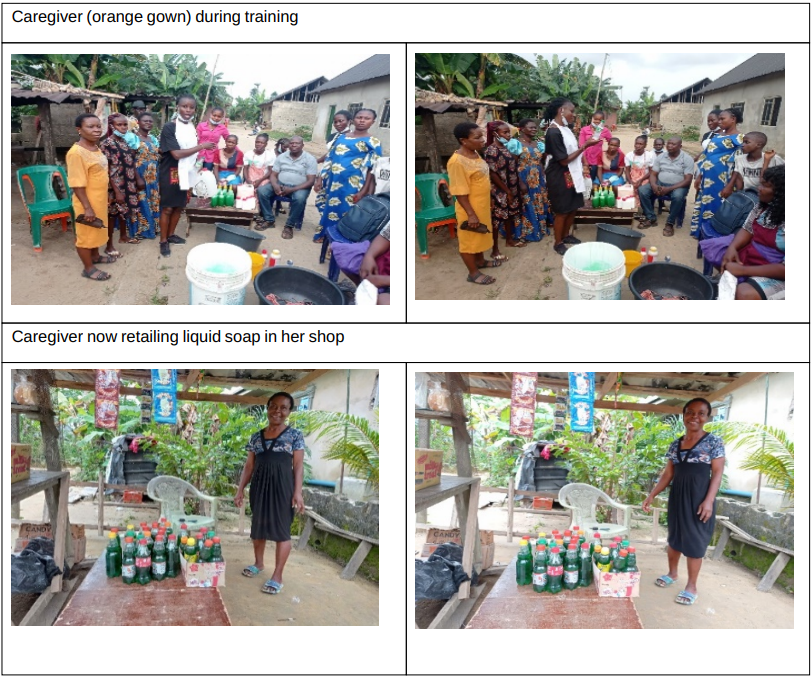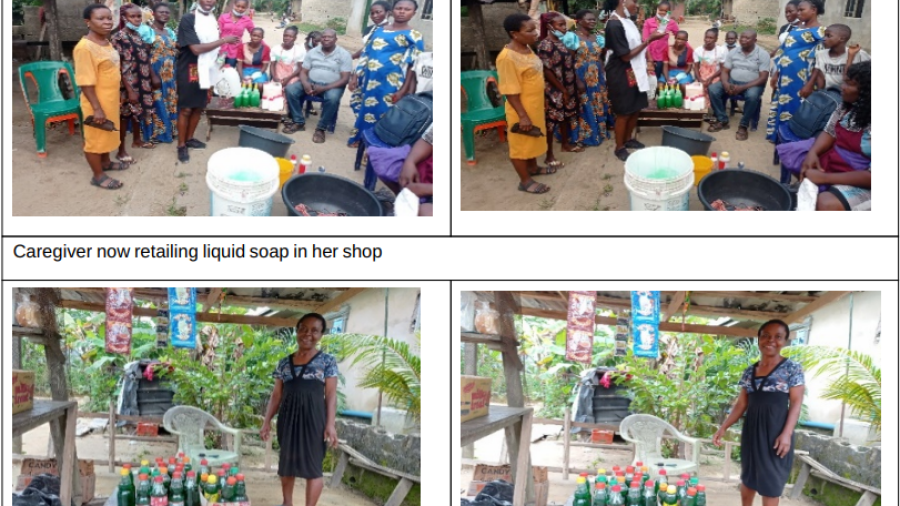ICHSSA 1 Project Skills Training Program Turned Indigene Caregiver to Entrepreneur in Bayelsa State.
Rosemary Ahamefule, a widow and a mother of two whose source of livelihood is majorly petty trading. She owns a small table-top shop sited in front of her home where she sells provisions; she also owns a small farm at the back of her house where she plants vegetables, potatoes and cassava. The combined monthly income from the sales from the shop and the produce from the farm is less than ten thousand naira.
In July, 2022, Rosemary benefitted from an ICHSSA 1 Project skills training program facilitated by Synergy-care Development Initiative (SDI) aimed at empowering indigene households to be self-reliant. Additionally, beneficiaries who successfully completed the training were given N15,000 start-up grants. In this program she was trained on how to make liquid soap and local bleach as a means to activate additional source of income to improve households’ food security.
After the training, Rose used part of the start-up grants to pilot test production of liquid soap and sell in her shop.
Specifically, she started by buying raw materials for N2,000 where she produced 4L of liquid soap and sold in her shop and made a profit of N700. She increased the quantity of raw materials where she produced 25L of soap, sold at N7,000 with a profit of N2500. Currently Rose produces 150L of liquid soap monthly, sell some in her shop and to other retailers where she generates over N42,000 and make monthly profit of N14,000.
This additional source of income has enhanced Rose’s financial standing and ultimately improved her households’ livelihood
alleviating the burden of hunger.
It wasn’t an overnight transformation, but slowly and steadily, Ramota began to heal. She met with our
trained counselors on the USAID funded ACE-4 project who gave her hope and a renewed sense of
purpose. She was no longer alone in her fight, and she began to believe in herself once again. A few
months later, Ramota returned to the healthcare facility for a check-up, and the results were shocking.
Her viral load had decreased to an astonishingly low level of 184 cp/ml from a worrisome count of
77,800cp/ml.
Her hard work had paid off, and she was finally winning the battle against depression. Ramota’s story is
one of resilience, hope, and the power of community. Through it all, she never gave up, and with the help of her sister and the healthcare professionals through support from the USAID funded CCCRN ACE-
4 project, she was able to turn her life around. She is now a beacon of inspiration for others who are
struggling with similar issues, and her story serves as a reminder that there is always hope, even in the
darkest moments.

